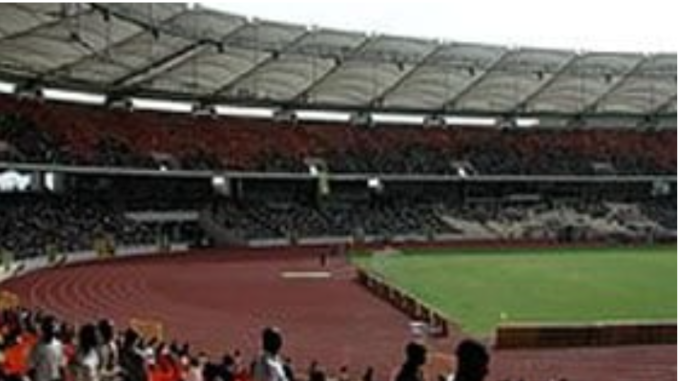
After watching the Green Eagles transform in the late 80s to become the Super Eagles at its glorious best in the 90s, its teetering performances as it entered the millennium made me become dispassionate about the national team. I followed the team more with my head than with my heart. I dropped the superiority complex of yesteryear for a more pragmatic and logical approach.
Be that as it may, my blood is still green and it was with this rare patriotic excitement that I celebrated Nigeria being paired against Ghana in the final World Cup qualifying round. Ghana, at the time of the draws, were a far poorer team, losing to lowly Comoros both at the earlier World Cup qualifying rounds and at the last AFCON. Nigeria, on the other hand, appeared to be in ascendancy. But if one now added the fact that Ghana remain an eternal rival, it would be an insult to Nigeria not to qualify because of Ghana.
The match was to be a two-legged, “home and away” affair. Football does this so that both teams are given the opportunity to take advantage of their home ground. With all other things being equal, a team’s home ground comes with two major advantages. First is that the team is supposed to have become used to its pitch while the visiting team would struggle with the unfamiliarity. The second is the swarming support it gets from its supporters, which should spur it on while intimidating and spoiling the rhythm of the opposing team.
To the first point. Why did the authorities move that crucial game to a stadium the players were not used to? If I am not mistaken, this was the first time this set of players would be playing in Abuja. Some were even playing in Nigeria for the first time. Now, this is not a call for the Eagles to have a permanent playing ground. I have disagreed with this notion in previous articles, insisting that the matches of the national team be federated around the country and that national spread, stands size, condition of the playing turf, accessibility to fans, security, hotel accommodations, TV friendliness of the stadium, importance of the match, opponent disadvantage and the like would be considered along with commercial partners in choosing where Super Eagles play their matches.
Since the aquiline of the current Eagles is suspect unlike their seniors of the 80s and 90s that won their matches irrespective of the venue, it now means we should take home matches seriously. Nigeria doesn’t play all those dirty tactics of food poisoning, poor accommodation, blinding our opponents with lasers and all worth not that Africans employ. Ghana knew they couldn’t beat Nigeria pound for pound, so they resorted to taking their home match 250km outside the capital city to Baba Yara Stadium in Kumasi. The same stadium where they beat then favourites Egypt 6:1 to qualify for the 2014 World Cup. Does Abuja have such an opponent-slaughtering history?
In fact, playing at home is not only about the stadium. It is about the atmosphere the host city generates. From the airport, the Eagles should have been welcomed with chants and praise. Billboards around the city should be adorned with goodwill messages from sponsors. These are things that ginger the players and demoralise opponents.
Is the stadium even accessible to fans? The stadium is not in the middle of town and public transportation in the Federal Capital Territory is too inflexible to be cheap for people to attend. The organisers had to make buses available for Abuja residents to find their way into the stands.
They succeeded in filling up the stands, but with who? I had admonished after our Lesotho game in Lagos that professional sports should not be taken as a social good but a business. That is why I have always advocated that the Nigerian sports industry be taken away completely from the hands of the government. Why was ticketing not outsourced to ticketing agencies and transparently advertised? Must one have gotten to the stadium on matchday to get a permit? Why didn’t they explore getting tickets online or using decentralised means of eateries or other sales points? There were reports of a stampede at the gates. This ought not to have happened. In fact, considering that there was a leaked security report of an imminent threat of explosive attacks on the stadium, crowd control should have been better managed. Viewing should have been decentralised to big screens at major hubs in the city for the two million-plus residents to be part of the action. After all, football is today more of a television event than a stadium event.
Another reason why ticketing should be taken seriously is to be able to track and manage the kind of spectators we want. Why were Abuja civil servants granted a half-day at work if they wouldn’t be the ones to be bused to the stadium?
Even if no monetary value was attached to gaining entry, coming with things like a Nigerian flag and adorning the team’s colours could be permits into the stadium. Had Thomas Partey led his Black Stars onto the pitch seeing only green and white on the terraces and not people just wearing ankaras or Arsenal jerseys, he would have wobbled for 90 minutes.
Well, we ended up with the sour jollof rice. Ghana is on their way to Qatar. Nigeria should take advantage of the 12th man next time.
Ayodele Okunfolami writes from Festac, Lagos; he can be reached at 07031973457
END

Be the first to comment